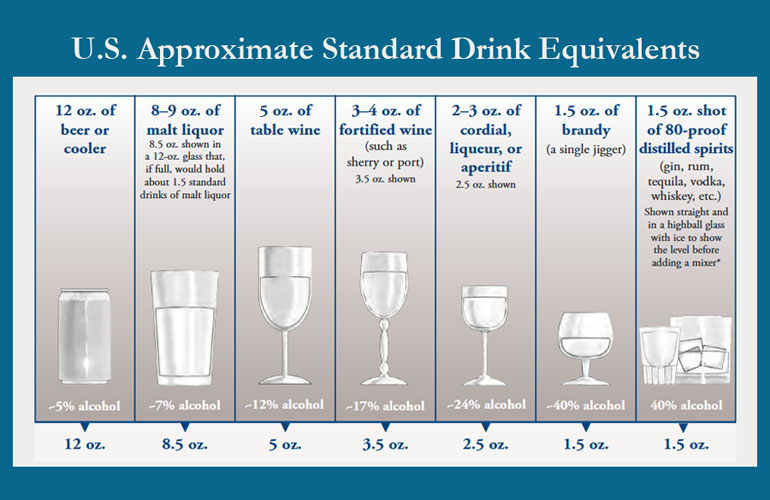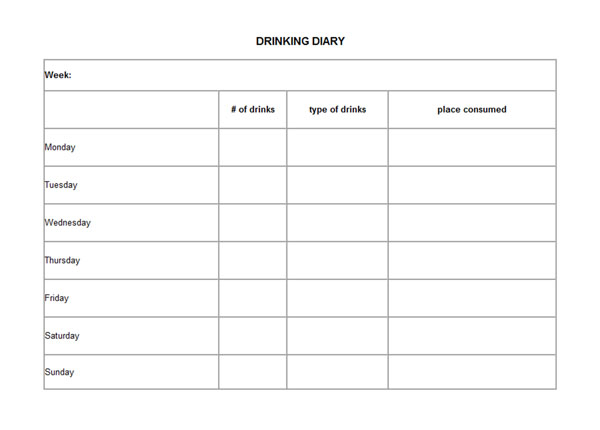Health Pages
Drinking Diary
Drinking Diary
A drinking diary is fast and easy record to keep. It will help you discover the amounts of alcohol you drink each day of the week and over the weekend. Enter the amounts and information on a daily basis and keep it over a period of several weeks. This will help you make important and interesting discoveries concerning your alcohol use and see more clearly where and when you drink. Additionally, you may become aware of circumstances and events preceding drinking. Records will help you learn about situations in which you risk drinking too much, who you were with and what were you doing. At the same time, it will help you learn how to avoid risky situations and plan ahead to avoid them or cope with them in other ways.
Keep in mind that abstaining is the safest course for most patients with alcohol use disorders.
People with the most serious form of alcohol addiction usually need intensive treatment followed by lifelong management of the disease. Some people who are not alcohol dependent, but who have experienced alcohol-related problems, may be able to limit the amount they drink. If they can't stay within those limits, they need to stop drinking altogether.
Did You Know?
All persons who indulge much in any form of alcoholic drink are troubled with indigestion. When they wake in the morning they find their mouth dry, their tongue coated, and their appetite bad. In course of time they become confirmed ‘dyspeptics,’ and as many of them find a temporary relief from the distress at the stomach, and the deficient appetite from which they suffer by taking more liquor, they increase the quantity taken, and so make matters much worse.
People who have milder forms of alcohol abuse or dependence and are unwilling to abstain may be successful at cutting down alcohol use and some of them may recover with little or no treatment.
A drink is:
- a 12-ounce bottle of beer;
- a 5-ounce glass of wine; or
- a 1½-ounce shot of liquor.
These limits may be too high for some people who have certain medical problems, use medications, or who are older. Talk with your doctor about the limit that is right for you. Check drink equivalents below.

Learn more:



